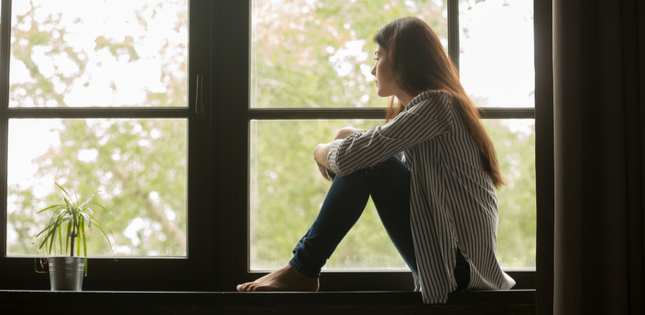Over the past few months, much has been written about the need to stay physically healthy to prevent the spread of the coronavirus - to be vigilant about hygiene, to wash our hands thoroughly and frequently, to stay home and to practice social distancing,
But Tohoku University would like to remind everyone that their emotional and mental wellbeing is just as important.
According to mental health experts, trying times like these can often trigger feelings of anxiety, loneliness and depression. For students who are away from home - especially for the first time - it is also natural to have bouts of homesickness, which might be compounded by concern for family and loved ones. These feelings are understandable and not unusual.
To help, the Tohoku University Center for Counseling and Disability Services is encouraging students who would like to reach out, to contact them.
"It is natural to feel unsettled. This is a completely new situation for both the university and students," said Center Director Shunji Sugawara. "However, anxiety can lead to stress, which can impact your mood, behavior and ultimately your health. That's why it is so important to be aware of how you feel and take positive steps to address those feelings at an early stage."
The Center has posted an FAQ in Japanese on its website containing ideas and perspectives on how to stay mentally healthy in these difficult times. All students, regardless of whether they feel they need help, should have a look.
Around the world, people are discovering new and creative ways to do familiar things and finding positive outlets for their energies while they stay home. The Center is similarly encouraging students to see the current situation as a chance to expand their horizons.
"Unusual times like these allow you to notice new things. For example, if you have lost touch with your relatives, now is a good time to reconnect by phone or SNS, and reexamine the importance of family," said Sugawara. "It is also a good time to consider your future and your priorities for student life, as well as to revisit any tasks you had set aside or were putting off until later."
Sugawara also urged students to keep up with the news and to be aware of the different responses to what is going on. "Think about your own response to unexpected events, explore the role and contributions of universities and research, and reflect on your own field of study," he said. "You can broaden your thinking by considering what responses are possible at various levels of society and government, and how the international community can move forward by working together."
In other words, he said, "now is a good time to consider what kind of person you want to become."
Students who would like to talk or who feel in need of direct counseling should feel free to contact the Center for Counseling and Disability Services. Due to the COVID-19 pandemic, however, counseling is currently only being conducted by phone. Appointments can be made via phone or email at the numbers below.
Tohoku University Center for Counseling and Disability Services:
Counseling Office (counseling on academics, interpersonal relations, and various matters related to student life)
Tel: 022-795-7833
Email (receptionist): gakuso@ihe.tohoku.ac.jpDisability Services Office (counseling on academics and daily life for students with disabilities)
Tel: 022-795-7696
Email (receptionist): t-sien@ihe.tohoku.ac.jp
Other Multilingual Resources:
Association of Medical Doctors of Asia Medical Information Center provides language support for medical situations.
TELL is a non-profit organization providing support and counseling services to Japan's international community. They offer support over the phone or via an online chat service in English.
Contact:
Tohoku University International PR SectionTel: +81-22-217-4816
Fax: +81-22-217-4818
Email: public_relations
 grp.tohoku.ac.jp
grp.tohoku.ac.jp
